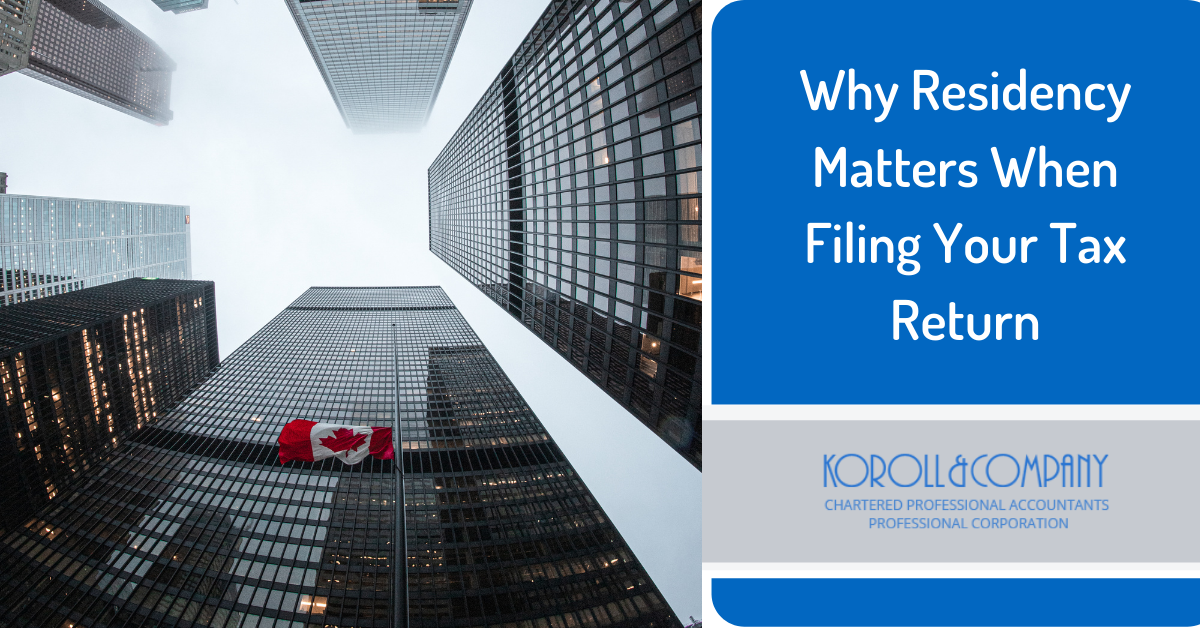
Unlike other countries, Canada uses residency instead of citizenship to determine tax obligations. That means you need to know what your residency status is before you can determine what your filing requirements are.
From a tax perspective, individuals in Canada fall into one of three categories.
- Ordinarily a resident, which is someone who is a resident in Canada throughout the year
- A non-resident, which is someone who is not a resident throughout the year
- An immigrant or emigrant, which is someone who is a resident for only part of the year
The first step in determining your residency status is to determine whether you have residential ties with Canada. If you maintain or establish residential ties in Canada, you’re deemed to be a resident of Canada and therefore have to file a Canadian Tax Return.
According to the CRA (Canada Revenue Agency) website, significant residential ties are:
- A home in Canada
- A spouse or common-law partner in Canada
- Dependents in Canada
There are also secondary residential ties that you may need to consider according to the CRA:
- Personal property in Canada, such as a car or furniture
- Social ties in Canada, such as memberships in Canadian recreational or religious organizations
- Economic ties in Canada, such as Canadian bank accounts or credit cards
- A Canadian driver's licence
- A Canadian passport
- Health insurance with a Canadian province or territory
Residency is determined on a case-by-case basis and will also consider length of time you are in the country, intent behind being here and continuity in and out of Canada.
If you are deemed a resident of Canada, you’ll have to take residency a step further and determine which province or territory you are a resident of. This will determine which province or territory receives your tax dollars, and which credits and deductions are available to you.
While this may seem straightforward, your province or territory of residency is not necessarily the province or territory you are living in as of December 31. It is the province or territory where you have greater ties to.
The primary criteria the CRA will look at are where:
- you maintained a dwelling
- Your spouse or common-law partner lives
- Your dependent children live
In some case further information may be needed including where you:
- Were self-employed or employed
- Had healthcare coverage
- Had your driver’s licence issued
- Registered your vehicle
- Had financial ties (i.e. financial services, bank accounts, RRSPs)
For help determining whether you are required to file Canadian taxes and which province or territory you are a residence of, contact our team today.







